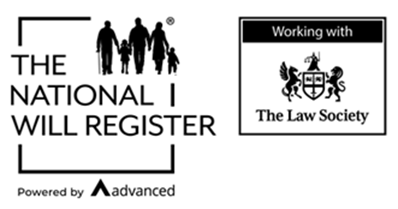Mirror Will or Mutual Will: What is the difference?

Mutual Wills are Wills made by two people with the intention that neither person will alter the terms of the Will and nor will they revoke the Will for the rest of their lives without the consent of the other person. Therefore, a mutual Will remains binding on the surviving person after the first death. If the surviving person does change the Will after the death, the executors of the original Will would hold the estate on a “constructive trust” – that is, a legal remedy rooted in promoting fairness where someone has been wronged. If the Court were to hold that a constructive trust is present, the executors would hold the estate for the benefit of the original beneficiaries who have been wronged by the revocation of the Will contrary to the original agreement.
Mutual Wills contrast with Mirror Wills which are the more conventional approach with regard to couples looking to make a Will. Those who intend to create a mirror will do so under the same terms but without restrictions imposed upon them. With a conventional mirror will, there is no way to ensure that the surviving spouse will not change their Will after the death of the first spouse. In many family situations this is fine because they may, perhaps, both share the same children. However, in many family dynamics, this does create a concern – perhaps where they have children from a previous marriage they wish to protect – and this is where the idea of a mutual will begins to take hold.
Disadvantages of mutual Wills
Mutual Wills naturally lack flexibility and can infringe on our testamentary freedom. There is a long history of testamentary freedom in England & Wales and the mutual Will can, some would argue, strike at the heart of that. As solicitors, we often say to our clients that we do not have a crystal ball and therefore cannot see the future: families and relationships change dramatically over time, and a mutual Will is not accommodating of this.
Additionally, in the event that there is a long period of time between the death of the first testator and the surviving spouse, they may have decided to remarry, have a new family and change their Will. The reality is that a remarriage would revoke an existing Will, and this would certainly have legal effect. The equitable remedy, however, is that the constructive trust would take effect should the original beneficiaries make a claim.
It is incredibly important that anyone making such a Will does so of their own free will and free from any outside pressure.
Recent case law:
In 2023, the Court made judgment in Naidoo v Barton. It was held that the test for undue influence in the creation of mutual Wills relies only test for Contract Law (the Etridge test), rather than the stricter probate test. It therefore means that a mutual will is a contract of sorts between the two people. The Etridge test recognises two forms of conduct: (1) acts such as threats and coercion; (2) exploitation of a relationship in which someone has influence over the other – such as abusing power under a Lasting Power of Attorney. In the case of (2), where it can be proved that a person was in a state of vulnerability or is dependent, it will create a shift in the burden of proof: it will create a rebuttable presumption of undue influence.
In contrast undue influence in a probate matter is never presumed and instead it must be established that there was coercion.
Alternatives: the life interest
As an alternative the couple making a Will could place certain assets into a trust. The basic principle of this kind of trust is that the surviving spouse would have an entitlement to the income (if any) that the assets produce, and the benefit of using the assets (such as property) for the remainder of their lives but they would never be (unless a clause in the trust document permitted) entitled to the underlying capital. This ensures that the surviving spouse is protected and so are your ultimate beneficiaries whilst still permitting the surviving spouse testamentary freedom over the rest of their free estate.
If you would like some guidance on navigating the labyrinth of Wills please do not hesitate to contact Alex Strickland on alexs@kjcoxsolicitor.co.uk


